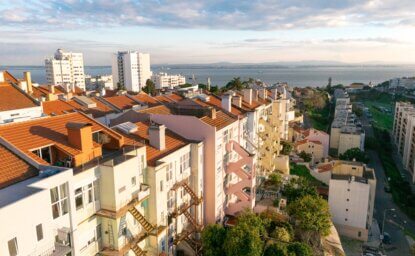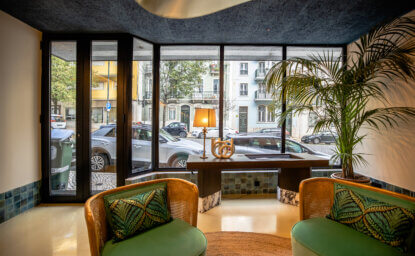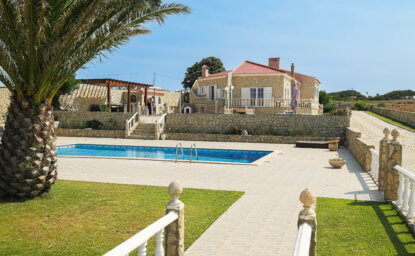Portugal’s education system has evolved into one that offers diverse options for families, whether they are local or expatriates. From public to private schools and a growing selection of international institutions, parents have a variety of educational paths for their children. If you’re considering living in Portugal, here’s a breakdown of the school system.
Education in Portugal is divided into different levels:
- Pre-school (ages 3-5), which is not mandatory
- Primary education (Ensino Básico) is compulsory and lasts for 9 years (ages 6-15), divided into three cycles
- Secondary education (Ensino Secundário) runs from ages 15-18, preparing students for higher education or vocational paths
- Higher education, including universities and polytechnics
The Portuguese school year typically runs from September to June, with summer vacations in July and August. Primary and secondary education is generally free in public schools, while private schools require tuition fees.
Public Schools
Public schools in Portugal are a popular choice for both locals and expatriates, particularly because they are government-funded and provide free education to children from primary to secondary school. They follow a national curriculum set by the Ministry of Education, ensuring consistency in teaching across the country.
The main language of instruction in public schools is Portuguese. This immersion can be beneficial for expatriate families looking to help their children quickly integrate into the local culture and language. For non-Portuguese speakers, there may be additional language support, but this varies by region and school.
In terms of quality, public schools in Portugal are generally well-regarded. Schools in more urban areas tend to have better resources and facilities compared to those in rural areas. However, the quality of education is consistent, with highly trained teachers and a curriculum that emphasizes core subjects such as Portuguese, mathematics, and science.
Public schools are often more inclusive in terms of admissions, meaning that they accommodate children from a variety of backgrounds. This inclusivity can help expatriate children feel more integrated into the Portuguese way of life, making friends within the local community.
However, one of the drawbacks for expatriate families may be the lack of focus on bilingual education. If fluency in Portuguese isn’t a priority, this could pose a challenge in adjusting to the system.
Private Schools
Private schools offer a distinct alternative to the public education system in Portugal. While tuition fees make them less accessible to everyone, they often provide smaller class sizes, modern facilities, and more extracurricular opportunities.
Private schools tend to offer greater flexibility in terms of curricula. Many follow international curricula, such as the International Baccalaureate (IB), British IGCSE, or American systems. These schools are particularly appealing to expatriates as they allow children to continue their education in a familiar framework, in their native language or a bilingual setting.
One of the significant advantages of private education is that classes tend to be smaller, giving students more individual attention. The teaching approach is often more modern, emphasizing critical thinking, creativity, and problem-solving skills. Parents may also find that private schools have a broader range of extracurricular activities, from sports to arts and music programs.
Tuition fees in private schools range significantly, from around €2,500 to €10,000 per year, depending on the institution. However, this cost is often seen as a worthwhile investment by parents who want a more tailored and individualized educational experience for their children. Many private schools in Portugal have a reputation for academic excellence and provide opportunities for students to advance to prestigious universities around the world.
International Schools
For expatriate families, international schools in Portugal are an appealing choice. Most are located in Lisbon, Porto, and the Algarve, though there are a few in other regions. These schools offer various curricula, including the International Baccalaureate (IB), British (IGCSE), and American programs, which ensure continuity for children who may move between countries.
Tuition fees for international schools typically start at around €5,000 per year, making them relatively affordable compared to other European countries. Popular international schools include the Carlucci American International School of Lisbon, The British School of Lisbon, and St. Julian’s School. These schools provide multicultural environments and top-notch education, with a focus on developing globally aware, confident students.
The national curriculum in public schools is standardized across Portugal, with core subjects like Portuguese, mathematics, history, and science taught throughout primary and secondary education. In secondary schools, students choose between vocational tracks (for careers in fields like IT or hospitality) or academic tracks, preparing them for university studies.
In private and international schools, the curriculum varies. British schools focus on problem-solving and creativity, following the IGCSE and A-level paths, while American schools offer a U.S. curriculum, with a pathway to universities in the USA and Canada. The IB curriculum is also an option at several schools, providing a globally recognized qualification for higher education.
Extracurricular activities are a significant part of the school experience in Portugal, especially in private and international schools. Sports, arts, music, and drama clubs are common, helping students develop a well-rounded education. Many international schools also offer a wide range of cultural activities that reflect the school’s diverse student body.
Portuguese schools, public and private alike, place importance on community and social values, with an emphasis on fostering cooperation and responsibility in students. For expatriate families, the choice of school often reflects the balance between integrating into Portuguese society and maintaining their cultural and linguistic heritage.
While public schools in Portugal offer free, high-quality education in Portuguese and focus on inclusivity, private schools provide a more individualized experience with the option of international curricula. The choice between public and private largely will depend on your educational goals, language preferences and budgets.ha entre uma escola pública ou privada depende dos seus objetivos educativos, preferências linguísticas e orçamento.









